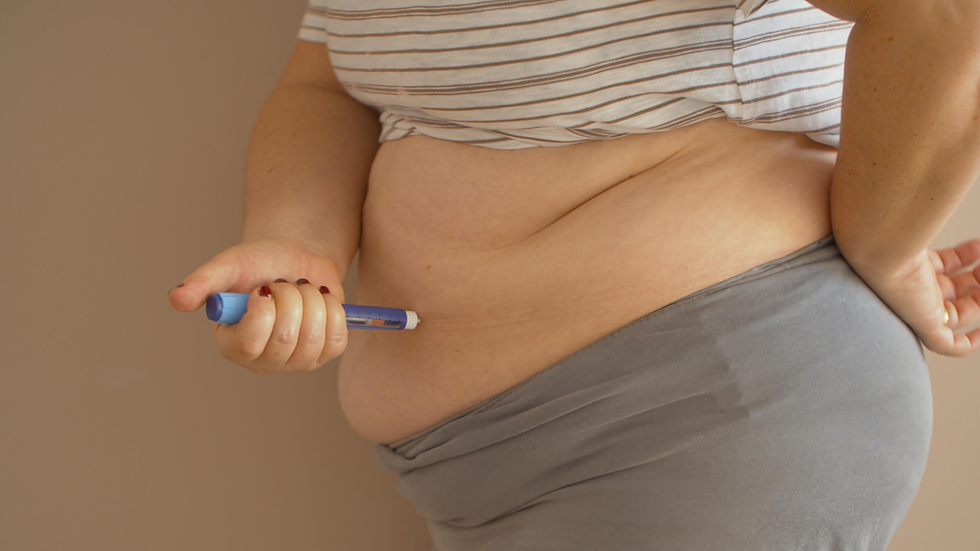Dental Implants vs. Dentures Why Dubai Residents Are Choosing Implants
- kishwar adnan
- Jul 23, 2024
- 4 min read
Introduction
Replacing missing teeth is essential for maintaining oral health, functionality, and aesthetics. Dental implants and dentures are two common solutions, each with distinct advantages and drawbacks. In Dubai, where advanced healthcare options are widely available, many residents are opting for Dental Implants In Dubai over traditional dentures. This article explores the key differences between dental implants and dentures and examines why dental implants are increasingly preferred by Dubai residents.
Understanding Dental Implants and Dentures
What Are Dental Implants? Dental implants are artificial tooth roots made of titanium that are surgically placed into the jawbone. They serve as a base for attaching replacement teeth, such as crowns or bridges. Implants are known for their durability, natural appearance, and ability to restore normal dental function.
What Are Dentures? Dentures are removable prosthetic devices designed to replace missing teeth. They come in two types:
Complete Dentures: Replace all the teeth in either the upper or lower jaw.
Partial Dentures: Replace one or more missing teeth while leaving the remaining natural teeth intact.

Key Differences Between Dental Implants and Dentures
1. Durability and Longevity
Dental Implants:
Longevity: Implants are designed to last many years, often a lifetime, with proper care. The titanium post fuses with the jawbone, providing a stable and permanent solution.
Durability: Implants are highly durable and can withstand normal chewing forces. They are less prone to damage and wear over time compared to dentures.
Dentures:
Longevity: Dentures typically need to be replaced or adjusted every 5 to 10 years due to wear and changes in the mouth structure.
Durability: Dentures are more susceptible to damage and may need to be repaired or relined periodically. They can also cause discomfort if not fitted properly.
2. Comfort and Functionality
Dental Implants:
Comfort: Implants provide a comfortable fit as they are integrated into the jawbone, eliminating the need for adhesives or adjustment. They function like natural teeth, offering stability and comfort.
Functionality: Implants restore normal chewing and speaking functions, allowing you to eat a wide range of foods without restriction. They do not shift or slip, enhancing overall functionality.
Dentures:
Comfort: Dentures can sometimes feel bulky or uncomfortable. They may require adhesives to stay in place, and adjustments may be needed to improve fit and comfort.
Functionality: Dentures can affect chewing and speaking abilities, especially if they are not well-fitted. They may shift or slip while eating or talking, causing inconvenience.
3. Aesthetic Appeal
Dental Implants:
Natural Look: Implants are designed to mimic the appearance of natural teeth, providing a seamless and aesthetically pleasing result. The crown is customized to match the color and shape of your existing teeth.
Gum Health: Implants help maintain healthy gum tissue and bone structure by stimulating the jawbone, preventing bone loss and preserving facial aesthetics.
Dentures:
Appearance: While modern dentures can look natural, they may not always match the appearance of natural teeth as closely as implants. Dentures can sometimes create a sunken or less natural appearance in the face.
Gum Health: Dentures can contribute to bone loss and gum recession over time due to the lack of stimulation to the jawbone.
4. Maintenance and Care
Dental Implants:
Care Routine: Implants require regular brushing, flossing, and dental check-ups, similar to natural teeth. They do not require special cleaning solutions or adhesives.
Maintenance: Routine maintenance involves monitoring the health of the gums and the implant through regular dental visits.
Dentures:
Care Routine: Dentures need to be removed and cleaned daily using special denture cleaners. Regular cleaning and proper storage are essential to prevent bacterial growth and maintain hygiene.
Maintenance: Dentures require periodic adjustments and relining to ensure a proper fit as the mouth changes over time.
Why Dubai Residents Are Choosing Dental Implants
1. High Standards of Healthcare
Dubai is known for its advanced healthcare facilities and high standards of medical care. Residents have access to state-of-the-art technology and skilled professionals, making dental implants a popular choice for those seeking the best possible outcomes.
2. Desire for Permanent Solutions
Many Dubai residents prefer dental implants due to their permanence and durability. Implants provide a long-term solution that eliminates the need for frequent replacements or adjustments, offering a more stable and reliable option compared to dentures.
3. Aesthetic Considerations
The aesthetic appeal of dental implants is a significant factor for many residents. Implants offer a natural look and feel, which aligns with the high standards of personal appearance valued in Dubai. They contribute to maintaining a youthful and attractive smile.
4. Enhanced Functionality and Comfort
Dental implants offer superior functionality and comfort, allowing residents to eat and speak confidently without the concerns associated with dentures. The stability and natural feel of implants align with Dubai’s emphasis on high-quality living and convenience.
5. Preservation of Oral Health
Dental implants help preserve jawbone health and prevent bone loss, which is important for maintaining overall oral health and facial aesthetics. This aspect is particularly valued in Dubai, where there is a focus on advanced dental care and preventive measures.
Conclusion
Dental implants and dentures both serve as solutions for missing teeth, but they offer different benefits and drawbacks. In Dubai, where advanced healthcare options and high standards of living prevail, many residents are opting for dental implants due to their durability, comfort, and aesthetic appeal.



Comments